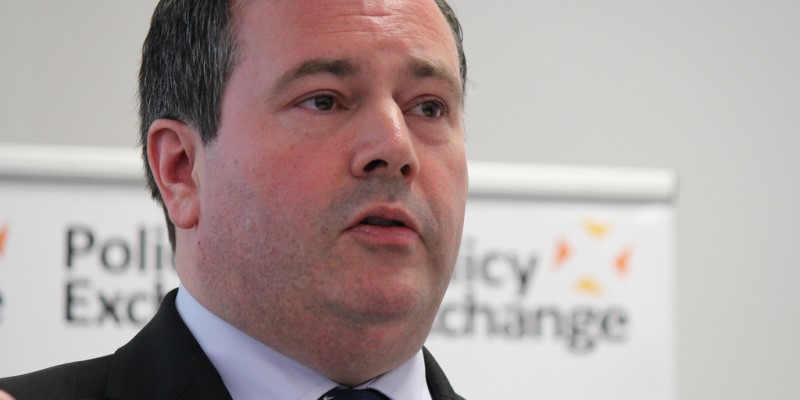In Budget 2022, Alberta continues its ride on resource revenue roller-coaster

With its new budget tabled Thursday, the Kenney government has bought another ticket for the resource revenue roller-coaster. According to the budget, the government will use the recent rebound in resource revenue, which includes natural gas and oil royalties, to balance the budget in the short-term and avoid fixing Alberta’s underlying fiscal problems for the long-term.
First, some background.
For decades, successive governments have increased spending when resource revenues are relatively high and the province is enjoying surpluses. Those surpluses, however, inevitably turn to deficits when resource revenues decline. This cycle of fiscal ups and downs is the resource revenue roller-coaster.
Right now, we’re on an upward trajectory. According to the new budget, buoyed by the rebound in energy prices, total revenues will be $62.6 billion in 2022/23, $15.2 billion higher than projected last year in Budget 2021. Resource revenue specifically will be $9.1 billion higher in 2022/23 than projected last year. And relatively high resource revenue is expected to continue over the next few years.
Again, the Kenney government has chosen to use the rebound in resource revenue to balance the budget in the short-term. But this strategy comes with consequences as provincial finances will remain vulnerable to fluctuations in commodity prices. Put differently, the province’s improved fiscal position will only last so long as relatively high resource revenues remain.
So, what’s the alternative?
The answer is twofold. First, the government could create a rainy-day account to stabilize the level of resource revenues in the budget by reestablishing the now-defunct Alberta Sustainability Fund (ASF), which was introduced in 2003 but eliminated in 2013. The fund set an amount of resource revenue the province could spend each year. The logic was simple—save resource revenue above the set amount during good times and use the savings to cover the shortfall during bad times to provide a stable amount to the budget annually. This rainy-day account would mitigate the boom-bust cycle in provincial finances.
Beyond addressing short-term volatility, the province must also prepare for a potential permanent decline in resource revenue in the future, which has become increasingly likely given recent federal regulatory changes that will constrain the energy industry. In Budget 2022, the government promises to save a share of future surpluses in the Heritage Fund, but leaves it at just that—a promise. Contributions to the Heritage Fund will be important to transform onetime resource revenues into a permanent financial asset that can provide an ongoing stream of income.
The Kenney government’s Budget 2022 shows an improved fiscal outlook in the short-term, but as long as we remain on the resource revenue roller-coaster we’re headed for trouble—eventually. Creating and funding a rainy-day account with the windfall in resource revenues, and requiring mandatory contributions to the Heritage Fund, would help stabilize finances for the long-term in Alberta.
Author:
Subscribe to the Fraser Institute
Get the latest news from the Fraser Institute on the latest research studies, news and events.

